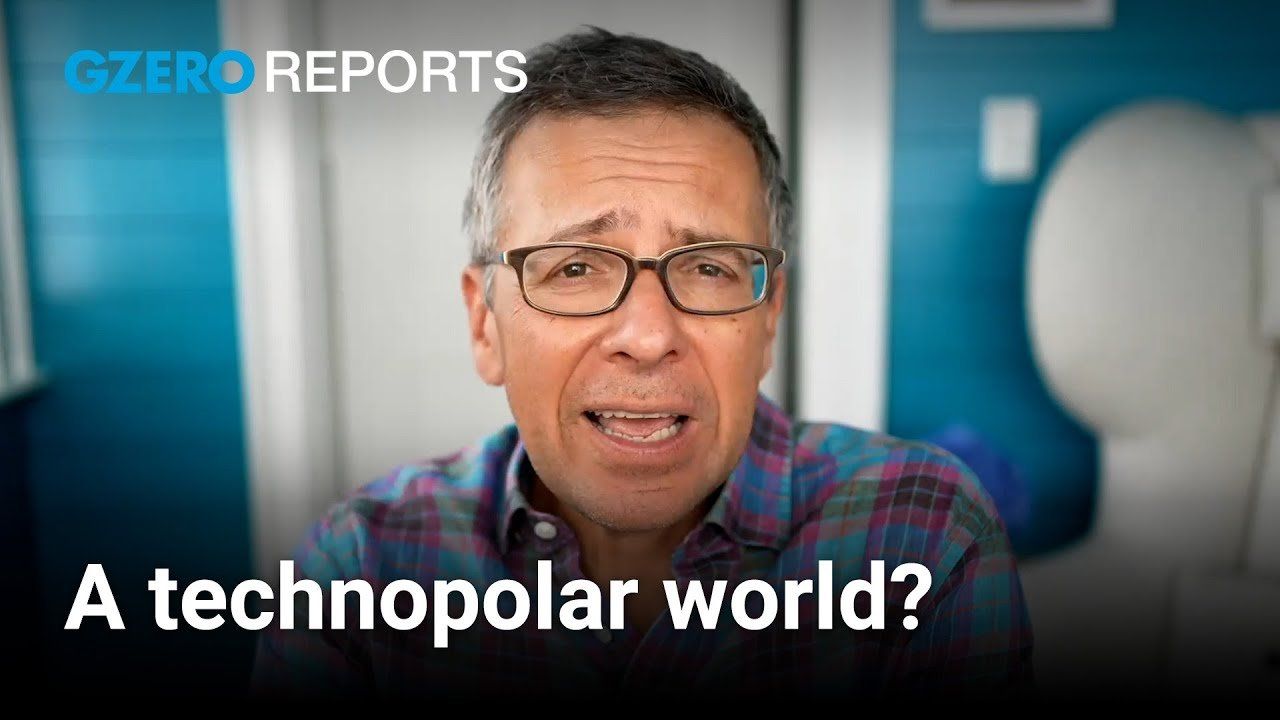Who runs the world? In a series of videos about artificial intelligence, Ian Bremmer, founder and president of GZERO Media and Eurasia Group introduces the concept of a technopolar world––one where technology companies wield unprecedented influence on the global stage, where sovereignty and influence is determined not by physical territory or military might, but control over data, servers, and, crucially, algorithms.
We aren’t yet in a fully technopolar world, but we do exist in a digital order where major tech companies hold sway over standards, operations, interactions, security and economics in the virtual realm. And Bremmer says this is just the beginning. He highlights two key advantages that technology companies have: their dominance over the digital space, which profoundly impacts the lives of billions of people every day, as well as their role in providing critical digital infrastructure required to run a modern economy and society.
As artificial intelligence and other transformative technologies advance, and more and more of our daily life shifts online, Bremmer predicts a shift in power dynamics, where tech companies extend their reach beyond the digital sphere into economics, politics, and even national security. This will almost certainly challenge traditional ideas about global power, which may be determined as much by competition between nation states and tech companies as it is, say, between the US and China. Incorporating tech firms into governance models may be necessary to effectively navigate the complexity of a technopolar world, Bremmer argues. Ultimately, how these companies choose to wield power and their interactions with governments will shape the trajectory of our economic, social, and political futures.
See more of GZERO Media's coverage on artificial intelligence and geopolitics,
More For You
100 million: The number of people expected to watch the Super Bowl halftime performance with Bad Bunny, the Puerto Rican superstar and newly minted Album of the Year winner at the Grammys.
Most Popular
Think you know what's going on around the world? Here's your chance to prove it.
An imminent US airstrike on iran is not only possible, it's probable.
Americans are moving less — and renting more. Cooling migration and rising vacancy rates, especially across the Sunbelt, have flattened rent growth and given renters new leverage. For many lower-income households, that relief is beginning to show up in discretionary spending. Explore what's changing in US housing by subscribing to Bank of America Institute.
